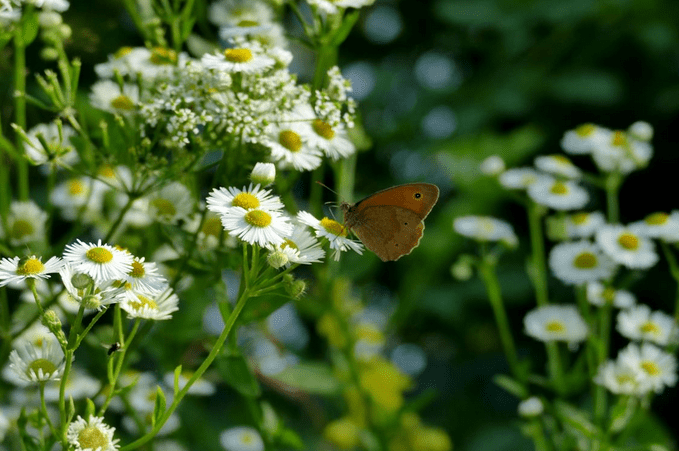
Are you wondering just how exactly you can cultivate your own garden like a real green thumb? What better way to embrace sustainability and support our buzzing friends than by growing vibrant and pollinator-friendly flowers? But how? Explore Aggressively Organic for unique organic gardening tips and more.
But what if you’re more into cultivating organic flowers that not only elevate the beauty of your garden but also promote a healthy ecosystem? For this, we’ve got some sustainable practices you can try.
Plant a Variety of Nectar-Rich Flowers
These vibrant blooms act as beacons, attracting our buzzing friends like bees, butterflies, and hummingbirds. But it’s not just about aesthetics – by providing an ample supply of nectar, you’re ensuring these pollinators have the energy they need to thrive and carry out their crucial role in the ecosystem. When selecting your flower varieties, opt for native species whenever possible. As quoted from Katherine Berthon in her study, native plants are very well-adapted to the local climate and weather, along with their local soil conditions. This makes them more resilient and requires less maintenance. Plus, they often have co-evolved with specific pollinators, forming mutually beneficial relationships that support biodiversity.
Consider incorporating a mix of early-blooming, mid-season, and late-flowering plants into your garden design. This staggered approach ensures a continuous source of nourishment throughout the growing season. Think sunflowers, lavender, coneflowers (echinacea), zinnias – the possibilities are endless.

Provide Water Sources
As mentioned in a study titled “Cooperative Extension: Garden and Yard,” in order to create a welcoming environment for pollinators, it’s important to provide them with ample water sources. Just like us, these hardworking creatures need hydration to thrive and carry out their essential tasks in the garden. Consider placing shallow dishes or saucers filled with water throughout your garden. These can be placed on the ground or elevated on rocks or bricks. Make sure to replenish the water regularly to prevent stagnation and mosquitos from breeding.
Another option is installing a small birdbath or fountain that gently circulates water. This not only provides drinking options for pollinators but also adds an aesthetic touch to your garden. If you have space, consider creating a small pond or wetland area. This will attract a wider range of wildlife, including beneficial insects and birds that rely on aquatic habitats.
Create Habitat and Nesting Sites
One way to create a habitat for pollinators is by incorporating native plants into your garden design. Native flowers provide familiar food sources and shelter for local insects and birds. Additionally, consider leaving some areas of your garden undisturbed or planting shrubs that offer protective cover. Another important element in creating nesting sites is providing suitable materials such as dead wood, hollow stems, or rocks where bees can build their nests. These natural materials serve as ideal homes for solitary bees, which are excellent flower pollinators.
Steer Clear of Pesticides and Herbicides
 If you do want to cultivate organic flowers that thrive, be sure not to use any synthetic pesticides and herbicides. These chemical substances can have harmful effects not only on your plants but also on the overall ecosystem. Pesticides are generally designed to kill pests. So they don’t discriminate between harmful insects and beneficial ones like bees and butterflies that play a vital role in pollination. By using pesticides, you may unintentionally harm these essential pollinators.
If you do want to cultivate organic flowers that thrive, be sure not to use any synthetic pesticides and herbicides. These chemical substances can have harmful effects not only on your plants but also on the overall ecosystem. Pesticides are generally designed to kill pests. So they don’t discriminate between harmful insects and beneficial ones like bees and butterflies that play a vital role in pollination. By using pesticides, you may unintentionally harm these essential pollinators.
The Bottom Line
So, as you can see, cultivating organic flowers is a wonderful way to contribute to a beautiful and sustainable garden while supporting pollinators. Follow these practices outlined in this article so you can create an oasis of nectar-rich flowers, provide water sources, create habitat and nesting sites for pollinators, and avoid harmful pesticides and herbicides.
For more tips and tricks on organic gardening techniques that will 100% help you build such a thriving ecosystem in your backyard while embracing sustainability principles – check out Aggressively Organic. They are experts in the field who have been successfully empowering individuals worldwide through their innovative gardening projects.
